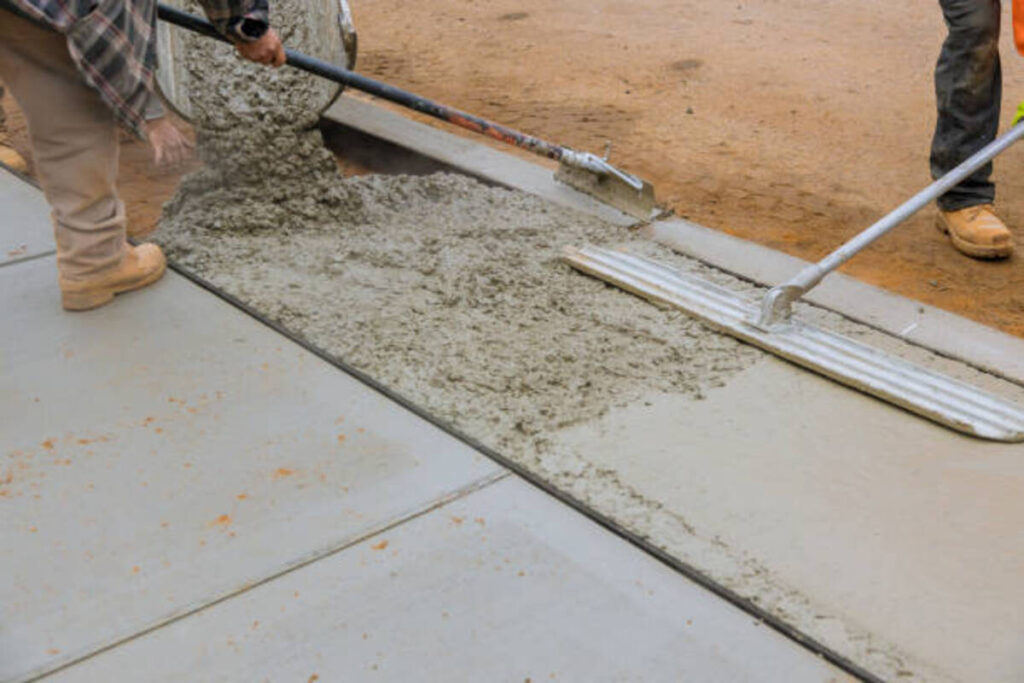When it comes to maintaining and enhancing the longevity of concrete floors, concrete floor sealers play a pivotal role. In this extensive guide, we will explore everything you need to know about concrete floor sealers, including their benefits, types, application methods, and tips for achieving the best results. Whether you’re looking to protect your garage floor, driveway, or any other concrete surface, understanding these key aspects will help you make an informed decision and achieve superior results.
What is a Concrete Floor Sealer?
A concrete floor sealer is a protective coating applied to concrete surfaces to safeguard them from damage, stains, and wear. These sealers enhance the concrete’s durability and appearance by providing a barrier against moisture, chemicals, and physical abrasion. Additionally, they can enhance the color and finish of the concrete, making it more visually appealing.
Benefits of Using Concrete Floor Sealers
Protection Against Moisture and Stains
Concrete is porous, which means it can absorb moisture and spills, leading to potential damage and stains. Concrete floor sealers create a protective layer that prevents liquids from penetrating the surface, thereby reducing the risk of damage and staining.
Increased Durability
By sealing your concrete floors, you can significantly increase their lifespan. The sealer acts as a shield against wear and tear, preventing cracks and deterioration caused by daily use, weather conditions, and other external factors.
Enhanced Appearance
Concrete sealers can improve the aesthetic appeal of your floors. They come in various finishes, including glossy, matte, and satin, allowing you to choose the one that best complements your design preferences. Sealers also enhance the color and texture of the concrete, giving it a fresh and polished look.
Easier Maintenance
Sealed concrete floors are easier to clean and maintain. The protective layer prevents dirt and grime from settling into the surface, making regular cleaning and upkeep more straightforward and less time-consuming.
Types of Concrete Floor Sealers
Penetrating Sealers
Penetrating sealers are designed to seep into the concrete surface and chemically bond with it. They form a protective barrier below the surface that repels water and oil while allowing the concrete to breathe. This type of sealer is ideal for outdoor concrete surfaces exposed to harsh weather conditions.
Acrylic Sealers
Acrylic sealers are applied as a coating on the surface of the concrete. They come in water-based and solvent-based formulas, each offering different levels of gloss and protection. Acrylic sealers are popular for their ease of application and versatility, making them suitable for both indoor and outdoor use.
Epoxy Sealers
Epoxy sealers create a thick, durable coating that offers excellent resistance to chemicals, stains, and abrasion. They are commonly used in industrial and commercial settings where high performance is required. Epoxy sealers can be tinted to provide a range of colors and finishes.
Polyurethane Sealers
Polyurethane sealers are known for their exceptional durability and resistance to wear and tear. They form a hard, protective coating that enhances the appearance of concrete floors while providing superior protection against stains, moisture, and UV rays. Polyurethane sealers are ideal for high-traffic areas and environments where durability is a key concern.
How to Apply Concrete Floor Sealers
Prepare the Surface
Before applying a concrete floor sealer, ensure that the surface is clean and free of any debris, dirt, or oil. If necessary, wash the concrete and allow it to dry completely. For best results, repair any cracks or imperfections before sealing.
Choose the Right Sealer
Select a sealer that matches the specific needs of your concrete surface and the environment it will be exposed to. Consider factors such as traffic levels, moisture conditions, and desired finish when making your choice.
Apply the Sealer
Follow the manufacturer’s instructions for applying the sealer. Generally, you will need to use a roller, brush, or sprayer to apply an even coat of sealer across the concrete surface. Be sure to apply the sealer in thin, consistent layers to avoid streaks and bubbles.
Allow for Proper Drying
After application, allow the sealer to dry completely before using the concrete surface. Drying times can vary depending on the type of sealer used, environmental conditions, and the thickness of the application. It is essential to follow the recommended drying times to ensure optimal performance and durability.
Maintain the Sealed Surface
Regular maintenance is crucial to keep your concrete floor looking its best. Clean the surface with a mild detergent and water to remove dirt and grime. Avoid using harsh chemicals or abrasive cleaners that could damage the sealer.
Tips for Choosing the Best Concrete Floor Sealer
Consider the Environment
Select a sealer that is appropriate for the specific environment where the concrete will be used. For outdoor surfaces, choose a sealer with UV resistance and weather protection. For indoor surfaces, consider the level of foot traffic and the need for chemical resistance.
Evaluate Performance and Durability
Different sealers offer varying levels of performance and durability. Evaluate the sealer’s resistance to stains, chemicals, and wear to ensure it meets your requirements. Look for products with positive reviews and proven performance.
Choose the Right Finish
The finish of the sealer can impact the appearance of the concrete. Decide whether you prefer a glossy, matte, or satin finish based on your aesthetic preferences and functional needs.
Follow Application Instructions
Adhering to the manufacturer’s application instructions is crucial for achieving the best results. Ensure you understand the recommended application techniques, drying times, and maintenance requirements.
Conclusion
Concrete floor sealers are an essential investment for protecting and enhancing the longevity of your concrete surfaces. By choosing the right sealer and applying it correctly, you can ensure that your floors remain durable, visually appealing, and easy to maintain. With the information provided in this guide, you are well-equipped to make an informed decision and achieve superior results for your concrete flooring needs.



